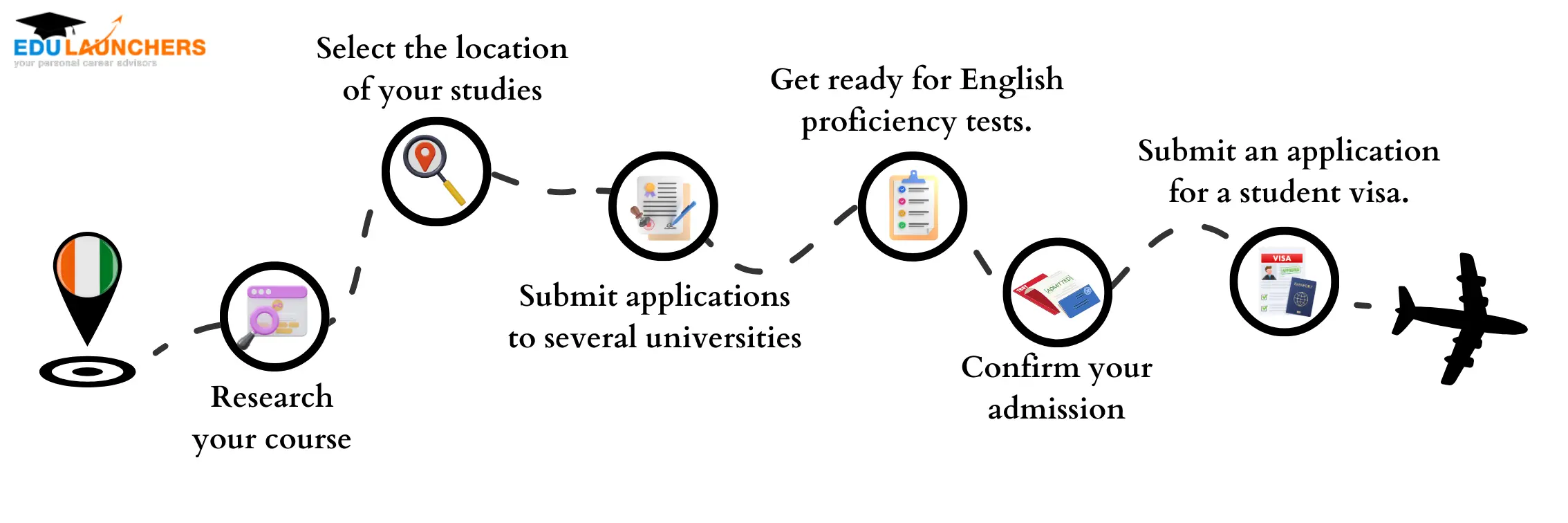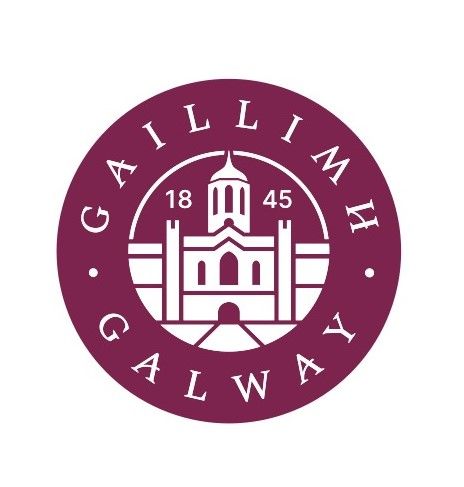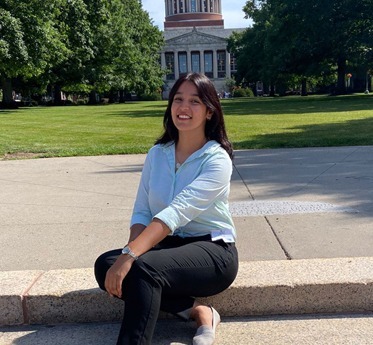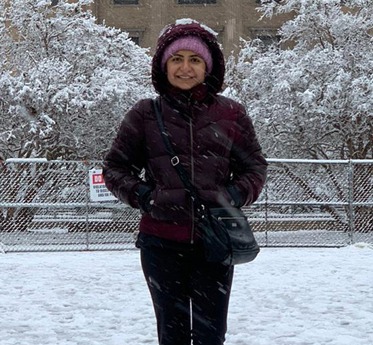Study in Ireland
Ireland is an island located in the north of the Atlantic. It has the most beautiful countryside and vibrant cities. The island has lush vegetation, thanks to its mild and variable climatic conditions, which avoid extreme temperatures. Ireland’s winters are mild, and summers are cool. Rain is plentiful. Irish culture is a vibrant culture. It has great importance on other cultures as well. Gaelic sports, Irish music, Irish language and literature have their charm. Irish sporting activities such as football, rugby, horse racing and golf have received support from Great Britain. This island’s food and cuisine are light and like all over the world. Anyone planning to study at the universities of Ireland will get the opportunity to a different beautiful culture.
Why Study in Ireland?
With access to many nations, Ireland is a favorable place to study for many students all around the globe. Ireland provides many scholarships, job opportunities, and a safe and clean environment to all.
More information about Ireland includes:
- Well-structured academics and educational institutes
- Affordable cost of living
- Good quality of life
- Good scholarships to well-deserving students
- A cultural mix of international students
- A safe place to study
- Chance of attaining European nation membership
Quick Facts About Ireland
- Ireland is known as the third-largest island.
- Its universities offer a first-rate education.
- The English language is widely spoken throughout the country.
- Ireland is also a popular study-abroad option for Indian students.
- University in Ireland offers special job-oriented programs.
Requirements for Students Applying to Ireland
With access to many nations, Ireland is a favorable place to study for many students all around the globe. Ireland provides many scholarships, job opportunities, and a safe and clean environment to all.
More information about Ireland includes:
- Well-structured academics and educational institutes
- Affordable cost of living
- Good quality of life
- Good scholarships to well-deserving students
- A cultural mix of international students
- A safe place to study
- Chance of attaining European nation membership
Benefits of Studying in Ireland
- Large number of Universities to choose from
- Research-based education policies
- The safest place to live in
- Growth-oriented nation
- Development and high potential of work opportunities
Higher Study Options
| Part-time work duration allowed | Post-study work permit | Can departments work full-time? |
Bachelors | 20 Hours per week | 2 years | Yes |
Masters (MS/MBA) | 20 Hours per week | 2 years | Yes |
Steps to Start Studying in Ireland

Eligibility to Study in Ireland
- To qualify for graduation, a minimum of 60% must be attained from an educational institute.
- During the graduation period, individuals should not exceed 10 backlogs to meet the eligibility criteria.
- IELTS score should be at least a band of 5
Educational Requirements to Study in Ireland
Study Options | Educational Requirement | Minimum Required Percentage | IELTS/TOEFL Score | Backlogs Information |
Bachelors | 12 Years of Education (10+2) or 10 +3 years of diploma | 55% | Overall, 6.5 with6.0 in each band | Up to 10 backlogs (some private hospital universities may accept more) |
Masters (MS/MBA) | 3/4 Years of Graduate Degree | 60% | Overall, 6.5 with no band less than 6 |
Cost of Studying in Ireland
It depends upon the study program you choose. The below table gives information about the course and average tuition fees.
Study program | Annual fees in Euros |
Undergraduate Program | 5,000 – 30,000 |
Post-graduate/master’s program | 9,000 – 20,000 |
Higher Study Options | Average Tuition Fee per Year (Euros) | Visa Fee (Euros) | Living Expenses for 1 Year (Euros) |
Bachelors | 9,000 and above | 60 | 7,000 |
Masters |
Below are the student expenses in Ireland for a Bachelor’s:
| S.No. | Top Universities for Bachelors in Ireland | Tuition Fees for Bachelors in Ireland |
| 1. | University College Dublin | €16,000 – €25,600 |
| 2. | Dublin City University | €10,800 – €16,600 |
| 3. | Trinity College Dublin | €13,758 – €29,548 |
| 4. | Maynooth University | €12,000 – €13,500 |
| 5. | NUI Galway | €16,750 – €23,000 |
Below are the student expenses in Ireland for a Master’s:
| S.No. | Top Universities for Masters in Ireland | Tuition Fees for Masters in Ireland |
| 1. | Trinity College Dublin | €18,375 |
| 2. | University College Cork | €16,000 |
| 3. | Maynooth University | €14,000 |
| 4. | Dublin City University | €14,000 |
| 5. | University of Limerick | €14,616 |
Upcoming Intakes in Ireland
Universities and colleges in Ireland offer 2 intakes. It is advisable to submit your application 6 to 8 months before the commencement of the academic session for better chances of success.
Intake 1 | Intake 2 |
September | February |
Study Options | Duration | Intake Months | Deadline to Apply |
Bachelors | 3/4 Years | September (major) and February (minor) | 6 – 8 months before the start of an academic session |
Masters | 2 Years | September (major) and February (minor) |
Popular Universities in Ireland

Trinity College Dublin, Dublin

American College Dublin, Dublin

University of Galway, Galway
National College of Ireland, Dublin
University of Limerick, Limerick
Dundalk Institute of Technology, Dundalk
Dublin City University, Dublin (Pathway as well as UG & PG Direct Entry)
Dublin Business School, Dublin
Shannon College of Hotel Management, A college of NUI Galway, Galway
University College Cork, Cork
Top 5 Universities in Ireland 2024
Global Rank | Universities |
81 | The University of Dublin |
171 | University College Dublin |
289 | University of Galway |
292 | University College Cork |
436 | Dublin City University |
Courses to Study in Ireland

- Data Science
- Business Administration
- Computer Science & IT
- Engineering
- Hospitality Management
- Architecture
Scholarships Provided to Students
Scholarship Name | Amount Per Year |
Centenary Scholarship Program | £4000 |
Central Bank of Ireland Undergraduate Scholarships for International Students | Up to £20,000 |
NUI Galway International Students Scholarships | €10,000 |
India Undergraduate Scholarships- Trinity College Dublin | €36,000 |
Dublin Institute of Technology (TU Dublin) | €2,000 – €5,000 |
The Ireland Universities/Colleges scholarship amounts and programs are subject to change, so it’s important to check the individual websites for the most recent details. Indian students should also confirm the requirements for eligibility and the application process.
Types of Ireland Student Visa
Visa type C
A type C visa is for students who are applying for a short stay in the country. this allows 90 days in the country for study purposes. if students want single entry a visa cost of 80 euros will be applied, while for multi entry visa, a cost of 150 euros is applied.
Visa type D
A type D visa is for students who are applying for a longer stay, it allows students to stay for courses that last more than 90 days. a single-entry visa will cost around 80 euros, while a multi-entry visa will cost around 150 euros.
Entry Type | Long Stay D Visa | Short Stay C Visa |
Single Entry | €80 | € 80 |
Multi entry | €150 | € 150 |
Ireland Student Visa Requirements
- Acceptance letter: A document that you will get from the university in which you have been selected. This document states your courses and the time durations of those courses.
- Proof of funds: applicants have to provide the details of any account that they have to prove that they have sufficient funds for tuition fees and to maintain the living costs of the country.
- Character certificate: to ensure that you have a clean background and no pending or closed criminal records universities ask for a character certificate. This ensures you have no bad intentions and you are a positive member of society.
- English proficiency: The applicant must have the minimum score that is required by the university in any English proficiency test like IELTS or TOEFL to prove that English is your medium of language.
How to Apply for a Ireland Student Visa?
Step 1: First, find out if you qualify for a student visa to Ireland.
Step 2: Set up the document checklist.
Step 3: Obtain a visa online.
Step 4: Await the result.
Step 5: Take a flight to Ireland to further your studies.
Visa Processing Time
The processing time for a visa for Ireland is around is 3 months. This is an estimation for the duration. Time depends on the correctness and availability of all documents that you will submit. It is highly advised to check all your documents properly and apply for a visa around 3 – 4 months before the time of departure for easy and hassle-free travel.
Work Authorization for Students
In the universities of Ireland, the government offers options for international students to work after their studies where students are allowed to stay 2 more years after their graduation.

Student Loans in Ireland
International students studying in Ireland may face challenges securing student loans from Irish banks. Generally, student loans in Ireland are available to Irish citizens or residents. However, you can explore options for private education loans in your home country or consider scholarships, grants, or other funding sources.
PR in Ireland after Study
After completing your studies in Ireland, you may be eligible to apply for a Post-Study Work Permit. The Irish government provides opportunities for international students to gain work experience in Ireland after graduation. If you secure a job offer and meet the eligibility criteria, you may be able to apply for a work permit and eventually apply for Permanent Residency (PR) in Ireland.

Why Choose EduLaunchers for Studying in Ireland?
EduLaunchers aims to provide quality and trust-driven services to Aspirants interested in studying anywhere in the world. We are dedicated to providing world-class, quality study visa services through well-trained, knowledgeable, experienced professionals. By visiting our website, you have surely taken the first step towards fulfilling your dreams and aspirations to study, live and work in the world’s major countries. By facilitating our skillfully crafted mini guides (career planners), we pave your path to these countries and prepare you ahead of time to immerse you in the culture, study, and work environment of those countries. This is your first step towards career advancement, and we ensure that you get the best out of our services.
Recently Graduated Students



Our Latest Blog
Recently Asked Question
IELTS is commonly required for admission to Irish universities and colleges. However, specific language requirements may vary depending on the institution and program. It is advisable to check the language proficiency requirements of your desired institution.
The cost of studying in Ireland can vary depending on the institution, program, and lifestyle choices. Generally, tuition fees for international students range from €10,000 to €25,000 per year. Living expenses, including accommodation, food, transport, and other miscellaneous expenses, can range from €8,000 to €12,000 per year.
To study in Ireland from India, you must follow these steps:
- Research: Explore universities and programs in Ireland that align with your academic interests.
- Admission Requirements: Check the admission requirements of your chosen institution, including academic qualifications, language proficiency, and any additional requirements.
- Application: Submit your application online directly to the institution or through the centralized application system, per the university’s guidelines.
- Visa Application: Once you receive an acceptance letter, apply for a student visa at the nearest Irish embassy or consulate.
- Financial Planning: Arrange funds for tuition fees, living expenses, and other related costs.
- Accommodation: Secure on-campus or off-campus accommodation, depending on your preferences.
Requirements to study in Ireland include a high school diploma or equivalent, English language proficiency, and meet specific admission requirements for the chosen course and university. International students may also be required to obtain a student visa and provide proof of financial aid.
The Government of Ireland gives its students the benefit of a post-study work visa. This allows students to stay in Ireland for up to two years after completing their degree.
If you ordinarily live in Northern Ireland and are currently studying or commencing a higher education course in the Republic of Ireland (ROI) in 2023 to 2024 academic year, you may be eligible to cover the total cost of the Student Contribution Fee may be eligible for a loan. , which is €3,000.
Yes, it is easy to get a PR in Ireland after study. A student visa is only a requirement for obtaining a PR in Ireland. To obtain your permanent residency, you must find a suitable job, obtain a work permit, and have lived in Ireland for at least five years.
Yes, various scholarships are available for international students studying in Ireland, including government-funded, university-specific, and private scholarships. However, the eligibility criteria and application process may differ for each scholarship.





